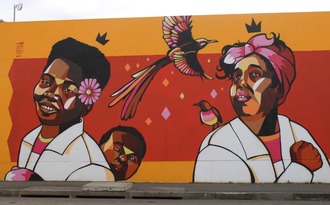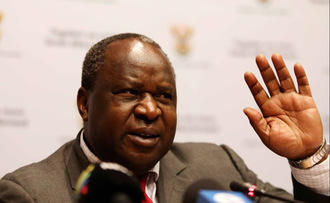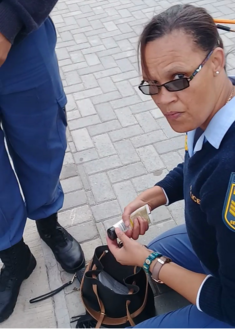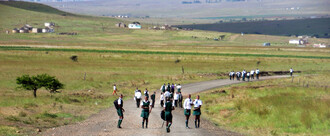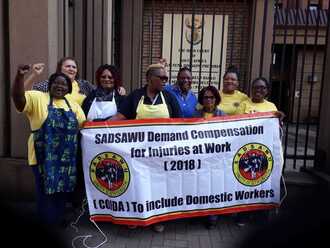- Featured
- Clean air
- Climate justice
- Consumer Rights
- Corporate Accountability
- Data access
- Early Childhood Development
- Economic fairness
- Education
- Electoral fairness
- Environmental justice
- Food justice
- Gender based violence
- Grants/social assistance
- Health
- Housing and infrastructure
- Industry interference
- Land Justice
- LGBTQIA+ rights
- Media/ information access
- Public transport
- Racism
- Reparations
- Safety
- Sanitation
- Service Delivery
- Sexual and Reproductive Rights
- Social justice
- Unemployment
- Womxn's rights/ gender equality
- Workers' rights
- More
-
Pledge Solidarity with Eastern Cape Community Health WorkersWe can no longer tolerate a situation where our state, far from being an example of good labour practice, is responsible for the casualisation of work and the exploitation of the mainly women workers who are leading grassroots healthcare provision in our communities. CHW’s demands, in the Eastern Cape and in the rest of the country, for secure employment and a living wage must be met, with immediate effect. We note the recent permanent employment of CHW in Gauteng as a step in the right direction and hereby demand an end to regional disparities in the pay, recognition and integration of CHW into the workforce of the National Department of Health.839 of 1,000 SignaturesCreated by Anneleen De Keukelaere
-
Demand Corona Relief Fund be set up for precarious workers during the LockdownPrecarious workers make use of mass transport systems (taxis and buses) to get to and from work, areas the WHO and National Department of Health have deemed as high risk for infection. Furthermore, domestic workers and health care workers work in intimate spaces with people who are at high risk of COVID-19 infection, such as the elderly and people who have travelled to and from high-risk countries. However, due to the legacy of inequality, we continue to live in, these are the very same workers who will not be paid – and cannot afford – to self-quarantine. Without income, they also cannot afford healthy food or medication, making them even more vulnerable. We commend the Government for communicating around COVID-19, however, gaps remain in addressing the anxiety, fear and stigma related to infection. On top of the fear of dying, vulnerable workers reside in communities where the potential is high for stigmatisation and discrimination in the event of self-quarantine or being identified as having the virus. We believe that a successful response to COVID-19 requires unity among all who live in South Africa, and we aim to be part of a unified solution. That unified response, however, requires Government to take bold and deliberate steps to ensure that the most vulnerable members of society are cared for and have their dignity and livelihoods secured. COVID-19 will exacerbate inequality among the working class of this country as they do not have the choice to ‘work from home’ and they are subject to ‘no work no pay’ labour conditions. This is compounded by the fact that domestic workers and informal workers particularly still do not have access to the Compensation for Occupational Injuries and Diseases Act (COIDA) that other COVID-19 affected formal workers have. This means that domestic workers and informal workers cannot claim compensation in the event that they contract COVID-19 while at work. Given that we are officially under a national state of disaster, Mr President, we call for expedited access to the Unemployment Insurance Fund (UIF) for domestic workers and informal workers.830 of 1,000 SignaturesCreated by Coalition of Unions, Formal and Informal Workers, Organisations, Activists and other Allies
-
Tell Finance Minister to fully fund the IPIDMany women in South Africa have been victims of rape, murder and robbery by the hands that are meant to protect them, and not enough is being actively done to protect them. [3] To restore trust between the police and women, The IPID must be fully independent of SAPS. It’s the IPID’s duty to be ‘watchdogs’ over unlawful acts by the police. But they’ve failed to do this possibly because of the level of dependence on SAPS. To this day, not one police officer has been arrested for shooting at the Marikana miners. The Farlam Commision of Inquiry revealed nothing but poor leadership from the Saps, resulting in lives lost and no justice served.[4] The Finance Minister is currently working on his budget speech for February, there is no better time to act. We have a chance to ensure IPID is fully independent. If we don’t act now, we may have to wait another year for the next budget. References: [1] http://www.ipid.gov.za/sites/default/files/documents/121764%20IPID%20Annual%20Report%20FULL.pdf [2] https://joburgeastexpress.co.za/38927/ipid-how-to-report-a-case-against-officers/ [3] https://citizen.co.za/news/1572102/woman-raped-by-two-men-in-jmpd-uniform/ [4] https://www.dailymaverick.co.za/article/2019-08-16-sa-still-waiting-for-action-on-farlam-commission-findings/93 of 100 SignaturesCreated by Destiny Manda
-
Justice for Sandisiwe - NO BAIL for her accused murdererThose arrested for allegedly perpetrating such violent crimes pose a severe threat to community safety and the mental and emotional well-being of ordinary citizens. Those on trial for violating human rights should not enjoy the freedom afforded by such rights until such time as they are proven innocent. In addition, President Cyril Ramaphosa called on Parliament to pass a law that will prevent the granting of bail to suspects charged with rape and murder earlier this month. Let this serve to remind the President of what he has promised, and that we expect him to keep his word.148 of 200 SignaturesCreated by TheTotal Shutdown

-
Justice for Esethu Mcinjani. We demand police to be held accountableEsethu Mcinjana was arrested on Sunday 19 May 2019,spent the night at Sea Point Police Station.This happened shortly after arriving early for a job interview at a hotel. She arrived early for the interview and went to sit on a bench on the promenade to wait while taking selfies.The two police officers came and searched her going through her handbag. Finally, they decided to arrest her without any valid reason or evidence. This is wrong on many ends and in a democracy of 25 years, it violated so many rights of this Black Womxn. During apartheid in South Africa, the freedom to movement of black citizens to and from urban areas were restricted through pass laws. The right to movement and residence is a key aspect of respecting people's freedom. However, in the case of Esethu it can be concluded that this right was clearly violated because of the color of her skin and the area she was found arrested in. The two police officers failed to uphold the law as they violated Esethu's right to equality. Meaning she was not treated equally and fairly, she was discriminated unfairly on the basis of race, gender, ethnic or social origin. This is evident as she told them and showed them (email/message) why she was in that area, at that point in time. To even question why she is there, is already wrongful in many basis. The arrest could happen to any of us on any given day, especially in a city like Cape Town, were black people's movement is constantly questioned because of racism that continues to thrive even after 25 years of democracy. Surely, this systematic issue needs to be addressed urgently in this country. 1.Ella Ndongeni. A woman was taking selfies on a Sea Point bench. She was arrested and locked in a cell overnight. GroundUp. 23 May 2019 2. Bill of Rights. The Constitution of South Africa.93 of 100 SignaturesCreated by Dineo Mogotsi
-
Implement proper measures to monitor and run efficient scholar transport in KwaZulu-Natal1. Many children in rural KZN even in our current times still walk for more than 5km to school. KZN has the highest proportion of children walking to school. Scholars are incorrectly classified at the department of education as attending the school of choice and not that that is closest to home. Learners have difficulty concentrating and staying awake in class due to waking up early and walking long distances on an empty stomach. Children walk on gravel and curvy mountainous area making it dangerous for the children walking especially girl children. Children rely on minibus taxis and bakkies for transport. In 2017 alone 10 pupils died and more than 90 were injured using these modes of transport. It is important that children are given access to safe transportation from home to school to allow them their right to education and safety. 1. The Long walk to school. Nkululeko Nene for IOL. 17 September 2017132 of 200 SignaturesCreated by Zanele Cindi
-
Save Msunduzi CityThe Msunduzi Local Municipality is dysfunctional and is on the brink of collapse and as residents and ratepayers of Msunduzi, hereby unanimously voice our strong and serious concern at the continued lack of effective and efficient delivery of basic services. We demand that the Msunduzi address and improve the service delivery issues and implement the auditor-general report recommendations of (2017-2018) by the 15 April 2019 failing which we, the long suffering residents and ratepayers of Msunduzi, will have no alternative but, in terms of Section 139 of our National Constitution, to motivate for National and Provincial intervention in the local government and management of Msunduzi, including that the Council be dissolved and the municipality placed under administration.5,663 of 6,000 SignaturesCreated by Anthony Waldhausen
-
Government must ensure there are Sexual Offences Units at all institutions of higher learningA Sexual Offences Unit will ensure that survivors of gender based violence receive specialised and sensitive support and resources that will help towards their healing journey. Campuses that have an already existing ‘gender office’ need to change their systems so that they serve the concerns of everyone on campus, and are in line with the proposed Sexual Offences Unit. The Black Womxn Caucus, an intersectional women’s organisation at Wits University have called for a ‘rapid response rape team’ for gender based violence to be established on the campus. The movement advocates for a thorough understanding of gender violence as it occurs in many forms and in many spaces, and reinforces the violences that womxn and gender non-comfornimg bodies are subjected to in this country. As the number of rape, sexual abuse and killing of womxn and children in this country continues to increase so does the call from those most affected by violence in our society to organise ourselves to fight gender based violence. The Black Womxn Caucus insists that if their Vice Chancellor at the time, Adam Habib, among others, were able to establish a rapid response team [4] to clamp down on student protest action following the #FeesMustFall movement, there is no reason the university should also prioritise the establishment of a ‘rapid response team’ to address gender violence on campus. The Sexual Offences Units should include: support staff who encourage everyone on campus to go for prosecution through reporting their cases; this includes a 24 hour psychologists available at all times for emergencies, and a space for activists to assist in sharing insights to developing better models aimed at reducing all forms of violence on campus. This unit must also represent the different socio-economic backgrounds of members of the institutions community, and be able to cater to survivors of all backgrounds.152 of 200 SignaturesCreated by Black Womxn Caucus
-
We demand a Sexual Offences Unit at Rhodes University!Two years ago, with what sparked an international conversation on the issue of rape and rape culture, commonly known as the #RUReferenceList protests, women and non-binary individuals set precedent for other institutions across the country to participate in a national discussion on problematizing how unsafe campuses are. In 2016 women, from all walks of life across the country demonstrated in solidarity with those at Rhodes University – highlighting not only the prevalence of GBV in our society, but also the failure of institutions in protecting its students. Since the advent of democracy, our institutions pride themselves in being leaders of transformation in society. They have prided themselves in being vehicles providing a vast range of knowledge to individuals entering their spaces. Yet, when it comes to issues of gendered discrimination and the effects it has on individuals – particularly women and minority groups – our cries seem to be invalid, and our experiences erased. We are tired of saying “enough is enough!” when it only suits the institution’s agenda. Your ‘enough’ does not suffice as every day we continue to live in fear of when our bodies will become another statistic to the vast crimes we experience on a daily basis. A Sexual Offences Unit will ensure that survivors of gendered and sexual orientation violence are met with the utmost sensitivity, specialized support and resources that will help towards their healing processes. The Sexual Offences Unit should include: support staff who encourage students to go for prosecution through reporting their cases; this consists of 24 hour psychologists available at all times of emergencies, and a space for student activists to assist in sharing insights to developing better models aimed at reducing all forms of violence on campus. This unit needs to be cognizant of all socio-economic demographics of the student body, and thus be able to cater to survivors of all backgrounds. The unit will provide sensitized support to student survivors who might not want to go through reporting their cases at the SAPS where they face further victimization due to a lack of training, resources and subsequently compassion. Rhodes University needs to cultivate a space that will ensure a prioritization of justice to survivors of sexual violence. In conjunction to this, the unit will have to implement the recommendations that were presented by the Sexual Violence Task Team at the end of 2016 in response to the demands of the student led protest #RUReferenceList. This unit will be very important as students leave college and university environments to enter the working space where issues of harassment are also prone. Socialization plays a huge part in curbing violence in our country, and it should start at home, in this case, at school. Rhodes University, much like society at large, needs to tackle gendered discrimination systemically through acknowledging and institutionalizing a culture of accountability in relation to the violence students experience. We need to push for our spaces of higher learning, the communities that we occupy every day, to internalize on a personal level policies and practices that speak to dismantling this culture of protecting perpetrators and stigmatizing survivors.841 of 1,000 SignaturesCreated by Yolanda Dyantyi
-
Tell the government to provide adequate information on free safe, legal abortion.In 2017 Akhona Matyeni* a matric learner from rural Umthatha, lost her life to an illegal abortion. Akhona bled to death after taking what she knew to be abortion pills, purchased for R200 from an unknown man who's phone number she had found on a poster on the streets of Umthatha. Akhona did not know that she could access a safe, legal abortion for free at a government hospital or clinic she was just desperate to ensure that nothing came between her and obtaining an education. According to the World Health Organization up to 13% of deaths among pregnant women can be attributed to unsafe abortions. Despite the fact that abortion is legal in South Africa, it is estimated that between 52% and 58% of the estimated 260 000 abortions that take place in the country every year are illegal [1]. By South African law a legal abortion can only be performed by a midwife, a registered nurse trained for the procedure, a general practitioner or a gynecologist. Many South African women and girls remain unaware of the law and the services they are entitled to. A 2005 study published in the International Journal of Gynecology & Obstetrics reveals that, in a sample of 50 South African women who had terminated pregnancies illegally/outside of designated facilities. Over 50% admitted they had done so because they "did not know the law". A further 15% said they knew their rights but they did not know where to access safe, legal abortions [2]. Access to safe abortions saves women's lives everyday. A lack of information shouldn't stand in the way of that. In South Africa poor provision of adequate information remains one of the main barriers for women who seek safe, legal abortions. As things stand it is much easier for women to access information on unsafe, illegal abortions than it is to access information on the free safe, legal abortions that our government is constitutionally obligated to provide. In 2017 Amnesty International reported that less than 7% of South Africa's 3 880 public health facilities perform termination of pregnancy. This is a figure that is far less than the 505 medical facilities that the Department of Health claims to have designated to perform termination of pregnancy across South Africa [3]. This indicates that beyond the issue of the lack of available information on safe, legal abortion facilities, there is the issue of the Department of Health itself not having accurate information on the functionality of its own facilities. An investigation into the functionality of existing facilities is imperative for us to ascertain exactly how many facilities are available and what their capacity is. A national online abortion database will ensure that every woman has direct access to information on where and how they can access a free safe, legal abortion. These interventions will save lives by drastically decreasing the number of illegal abortions taking place in our country and putting an end to the desperation that forces women to undergo unsafe, illegal abortions. We call on the public to take a stand and put pressure on our government to make these important interventions in order to save the lives of women who are turning to unsafe, illegal abortions everyday because of a lack of information. We call on you to stand with us as we demand reproductive justice for all! *Not her real name SOURCES [1] SAnews. (2018). SA's illegal abortion rate alarmingly high. [online] Available at: https://www.sanews.gov.za/south-africa/sas-illegal-abortion-rate-alarmingly-high [Accessed 6 Sep. 2018]. [2] Tshangela, L. (2018). Only 40% of public clinics provide abortions: Study - [online] SABC News - Breaking news, special reports, world, business, sport coverage of all South African current events. Africa's news leader. Available at: http://www.sabcnews.com/sabcnews/only-40-of-public-clinics-provide-abortions-study/ [Accessed 5 Sep. 2018]. [3] Dyk, J. (2018). When there was no list of free abortion clinics, we made our own. Here's how.. [online] Bhekisisa. Available at: https://bhekisisa.org/article/2017-11-10-00-mind-the-gap-only-5-of-health-facilities-offer-abortions-heres-how-to-find-them [Accessed 6 Sep. 2018].521 of 600 SignaturesCreated by Noxolo Mfocwa
-
Minister of Labour wants to change the law so domestic workers can get compensation - support thisDomestic workers are denied compensation for injuries because they are excluded from the Compensation for Occupational Injuries and Diseases Act (COIDA). But an amendment to the law has been proposed. But we only have 7 days before public submissions close, and we need to come together in numbers to ensure the law is changed. Maria Mahlangu, a domestic worker drowned in 2012. Her family was offered only R2500 compensation. Johanna Motha was bitten by her employer's dog and set home without medical treatment. She ended up dying as a result of her injuries. These are just two of the countless incidences of injury and illness domestic workers have faced on the job. SADSAWU( South African Domestic Service and Allied Workers Union) brought an application against the Minister of Labour and the Compensation Commissioner for domestic workers to claim compensation in terms of the Compensation for Injuries and Diseases Act 130 of 1993(COIDA), in response to the poor compensation Mahlangu's family was offered. The case has been pending since 2015. The case has recently been postponed, after being set for the 15th of October. This case is an example of the consequences of domestic worker's exclusion in this Act. We call on you to recognize this case, as well as the rights of domestic workers. The reality is that domestic work opens itself up to abuse. This abuse is targeted at Black working class womxn, who work behind closed doors and make up the largest percentage of domestic workers. Issues like health are always linked to racism and classism. Domestic workers are not seen as equals to their employer and are treated with contempt and disrespect. In the past domestic work, was not regulated by government, because they were not part of key labour legislation. Their work, was therefore seen as casual and informal, and little respect was paid to the work they do. This attitude of disregard towards domestic workers, is still seen in the way employers treat domestic workers. We are not paying enough attention to the health of domestic workers. Even though domestic work is included in the Occupational Health and Safety Act, they are still not a part of the Compensation for Occupational Injuries and Diseases Act [1]. This means domestic workers cannot seek medical compensation for costs linked to work related injuries and diseases. Domestic workers have to cover their own medical expenses when injured on the job. This is often times impossible- due to the small sum of money they are paid. Domestic workers should be paid R1787.80 a month [2], this is hardly enough to cover basic living expenses and transport to work. A study by Dr. Lindiwe Innocentia Zungu on the health conditions domestic workers experience. The findings were that there are a range of workplace health hazards. These included “chemical hazards due to detergents and other chemicals used for cleaning purposes, and physical hazards from activities involving manual handling and/or repetitive movements, e.g. scrubbing floors, moving furniture, washing and ironing clothes.... Furthermore, psycho-social hazards due to urbanization were also prevalent among participants who resided in their employers’ premises.'' [3] It is clear that domestic work can be dangerous, physically and mentally. This is why it is important that we demand for the Minister of Labour to commit to including domestic workers in the Compensation for Occupational Injuries and Diseases Act. By including domestic workers in this Act, they will have access to health care, when faced with injury or illness acquired on the job. Their inclusion in this Act is also a message of recognition for the important work they do. By getting enough signatures on this petition, together we can demand the Minister of Labour to commit to making domestic work a priority and include them in the Compensation for Occupational Injuries and Diseases Act. [1] “The 2018 minimum wages for nannies and domestic workers.” Nic Anderson. 13 December 2017 for Parent24 [2]“Bill on labour brokers gets green light”Nov 12 2013 Sapa. Fin24 [3]"Employment conditions and challenges associated with being a domestic worker in KwaZulu-Natal, South Africa. "Dr Lindiwe Innocentia Zungu, Associate Professor, University of Johannesburg, Faculty of Health Sciences.1,683 of 2,000 SignaturesCreated by Clio Koopman
-
Title deeds for the deserving residents of Pennyville flatsThe majority of people living in Pennyville are currently either unemployed or the families are child run or elderly run with most receiving grants. Most of them cannot afford the rentals and therefore in arrears amounting to thousands of rands. Attempts to address this matter with the relevant authorities have been unsuccessful.59 of 100 SignaturesCreated by Thabiso Seipobi
.png)

